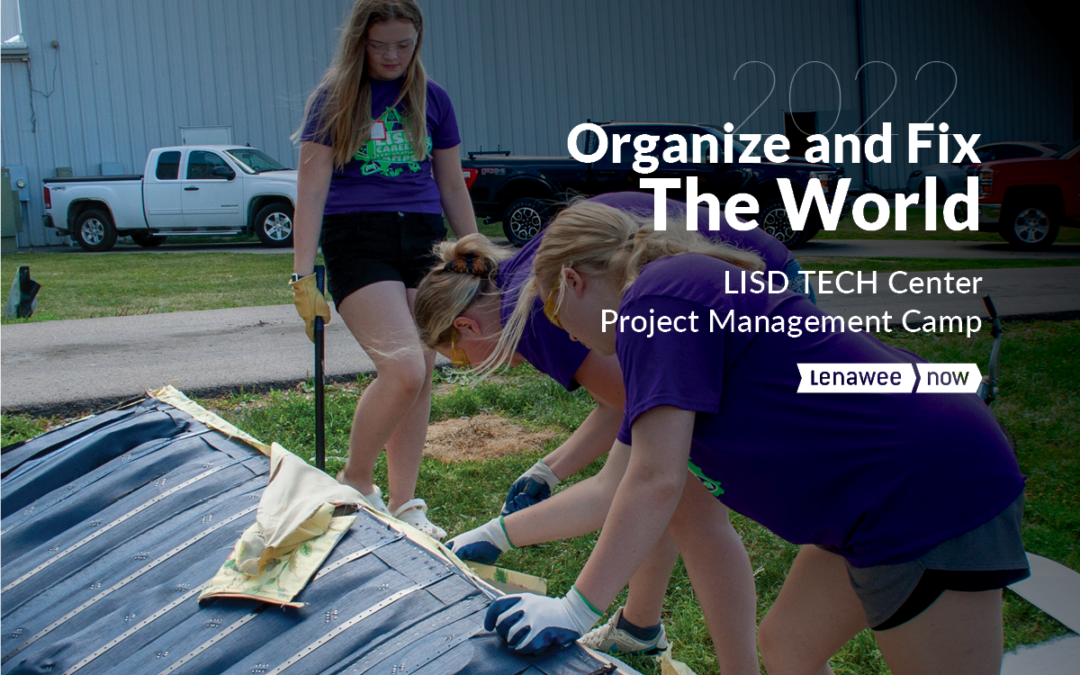Finding a career is one of the most daunting challenges for a student. Not only is it difficult to match one’s skills and interests to an occupation, but many students don’t know what vocations are available.
According to Jake Wright, project manager, and member of a panel of project managers at the Organize and Fix the World Camp, which is a week-long experience that exposes students to the field of project management: “I felt like a lot of what we learned about in school was the basic accountant lawyer and other easy-to-define career paths. Project management is so unique in any company that you work for. It is important to expose kids to that, to see that there are so many ways that they can go with this.”
Students at this camp studied the role, necessary skills, and day-to-day life of a project manager by way of dialogue with those in the field, hands-on exercises, and taking on leadership roles. By hearing from a panel of project managers, where students had a forum to ask any questions about the field and a day in the life of a project manager. As this panel consisted of project managers, who worked in different fields, both locally and internationally, campers were able to get a comprehensive look at the occupation.
In addition to asking questions to current leaders in the industry, middle schoolers were able to hone different skills over the week. To effectively practice leadership and communication, individuals were tasked to choose a game and lead the class in said game. For many students, such a leadership role can rather intimidate, them as it can be difficult to share the steps concisely. However, through practice, students became more adept in their communication skills.
Not only did students manage projects among themselves, but they were able to get involved in local non-profits, by undertaking beneficial projects for the organization. One such project included the making of blankets and dog toys for the Lenawee Humane Society. Through this project, participants became well acquainted with project adjustment, reassessment, and risk, as the initial design turned out much too small. One student noted that they looked more like “hamster blankets,” Therefore, students examined their initial measurements and modified them to make several full-size dog blankets.
Also, the camp partnered with the Habitat for Humanity ReStore, learning about the facility and embarking on a project for the institution. Kathy Lucha, a local restoration expert, discussed the skills that go into managing restoration, including resourcefulness, recognizing opportunities, and planning. After hearing about the job, campers selected an item to repurpose during the camp and then donate back to the ReStore. Initially, students were somewhat overwhelmed by the prospect of turning a small, innocuous object into something the populous would be excited to buy. However, as time went on, they formulated ideas and contemplated the steps needed to refurbish their item, including, evaluating the resources, time, and skills their plan would take.
By learning these aspects of project management, campers were not only exposed to a unique career field but improved on abilities that would be useful in every aspect of their lives.

